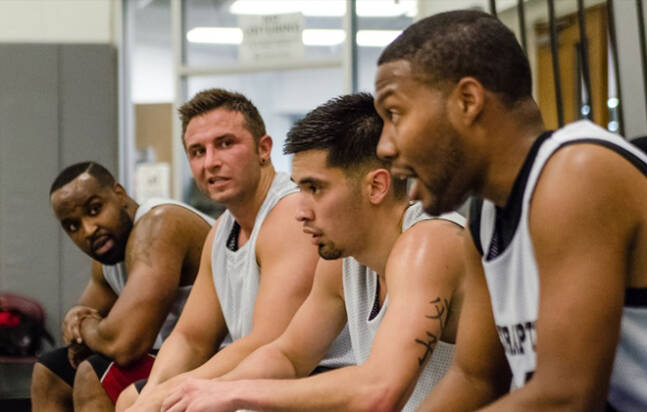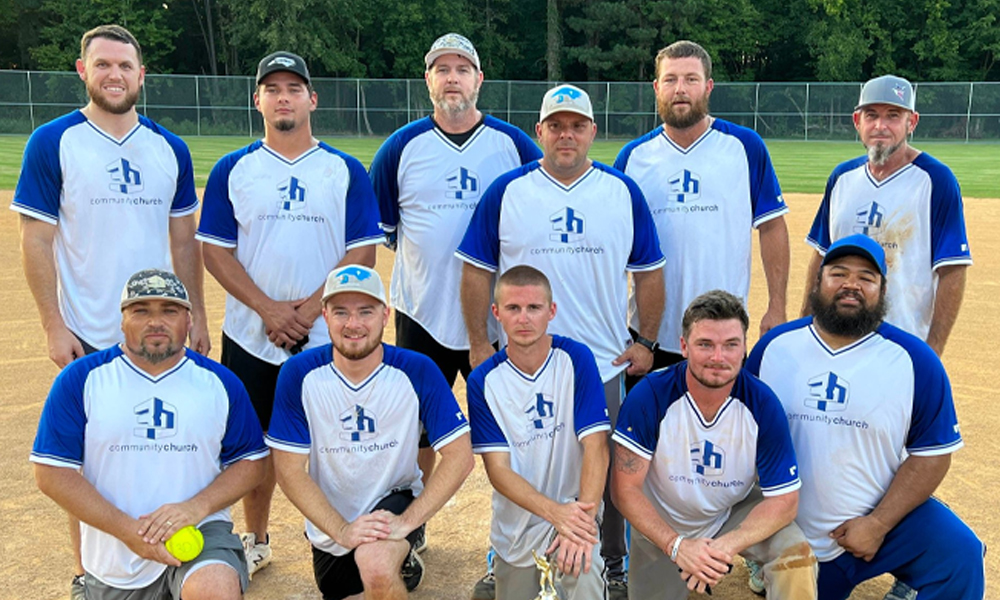When I came back to my hometown from grad school in 2019, two high school friends and I came to the realization that we needed to make more friends. Most of the people we hung out with up to that point had started chucking themselves at New York, Boston, DC, Seattle, Los Angeles, and anywhere else that wasn’t a midsized Mid-Atlantic American city.
Yet we didn’t really know where to find new friends. We weren’t in school anymore and we lived in the suburbs, which are actively hostile to socialization.
We were far from alone with this issue. Making friends as an adult can be hard. There are more responsibilities than a person’s school years and fewer opportunities that force you to meet new groups of people. The current job atmosphere doesn’t help, as a good portion of the workforce continues to be remote and there’s more job mobility versus sticking with the same company (and, therefore, the same group of people you work with) until retirement.
Our solution was to lean into my heavy nostalgia for baseball. I’d been desperate to get back into it for years, so I talked myself into accepting softball as a consolation prize, then dragged the two of them to a few informal batting practices while also floating the idea of possibly putting a team together. Shortly after, we scraped together a few more friends and signed up for our local rec league.

Rec Leagues are a Big Friendship Mixer
We weren’t worried about taking on free agents, mostly because meeting random people was the main point. I fully acknowledge and appreciate how weird, off putting, and awkward random people can be. But it’s always fair to remember that to other people, you may be that weird and awkward random person.
Our first team was roughly half people we already knew and half free agents. Two were a couple who didn’t seem to care whether or not they ever saw us again, one was a guy who’s been floating among teams seemingly since the league existed, and two were a couple who’d recently moved to the area. With those last two, things clicked. They stuck around for another season and a few serendipitous friend-of-a-friend meetings filled the spots of the other three who left the team.
Rec leagues open that first door of meeting people and getting the conversations going (and usually do so without any cringeworthy icebreaker games). They also put you in a group setting, so while there’s the off chance that you hit it off perfectly with every new person you meet, there’s a better chance that at least one person will be someone that you’d like to hang out around outside of the game. In a study on undergraduate students at the University of Albany, people who played intramural sports said that the biggest benefit they got from playing were personal social benefits through group bonding.
That’s not to say that rec leagues are an easy pre-packaged solution to immediately having new friends. Like anything worth having, it takes time. You still have to make time outside of games to keep a friendship up. Having a central activity in common is a good start, but just that: a start.
Common Interests Go a Long Way
While rec league options may be limited depending on the size of the town or city, they’re popular to the point that you can guarantee to find something you’re at least tangentially interested in playing. Data from CivicScience points to about a fifth of Americans playing in summer leagues. Tennis and pickleball were the most common, followed by baseball, softball, and kickball. Bowling is up there as well, along with basketball, soccer, and flag football.
In short, even if you don’t like the sports that are traditionally most popular in the country, there are options and likely something you can get into. Chances are, the people you’re playing with have interest in the sport in common. Similarities and common interests are key to making and keeping friendships.
As with keeping up with people outside of games is the only way to build true friendships from rec leagues, so is talking and gathering around more than just one interest. But it is a start, and getting started is often the hardest part.
The Benefit of Time Commitment
The cliché about quitting being easy is just as true for rec leagues. It’s not a job, and it’s easy to prioritize other things in life. The people who are committing as much as you do, however, is a good sign of where you want to be because it shows common interest. That means you’ll have weeks of repeated opportunities to hang out with these people.
Each of the softball seasons I’ve played gave me about 10 hours of game time, then an opportunity for at least another 20 hours of post game socialization. That’s a good 30 hours I’m spending with the same people over the course of about two months. If you believe a recent study that suggests it takes about 50 hours of socialization for someone to become a casual friend, one rec league season knocks out half of that. And after 30 hours with someone, you’ll definitely know if you want to spend another 20 hours with them.
The Postgame Facilitates Finding a Third Place
A third place is a term in sociology that refers to somewhere that isn’t your home or job, has a minimal to nonexistent entry fee, and where the main activity is conversation. Bars and coffeeshops are two of the most popular third spaces, though they’re far from the only ones. They’re incredibly important to building lasting friendships because they remove a lot of the financial pressure of work and the baggage of home. That’s not to say that you can’t make good friends at work or have a fulfilling social life that incorporates relatives. It’s more about putting everyone on equal footing (or at least as equal as you can reasonably expect) and giving people a chance to allow a friendship to grow organically.
Strictly speaking, recreational sports don’t qualify as a third place. Most leagues come with some kind of sign-up fee and are at least competitive enough that conversation is a by-product of the game, not the main focus. That’s two out of three criteria out the window. But they help in the search for a third place in that everyone’s already together, so you might as well do something. And what you might as well do is head over to the bar that’s associated with the league. Sometimes that’s in an official capacity, where there are drink specials or a reserved room waiting for you. Other times it’s unofficial, where people naturally congregate at the closest or best bar.
Finding a third space to build on rec league friendships was harder during the height of the pandemic, of course, and that hit shortly after I joined my first team. But with the two teams I joined after I moved in 2023, at least a few of us would grab a beer, hang out, and shoot the shit, all in a context where our opinion of the person wasn’t influenced by their performance in a competitive event. They could have just played the single greatest game of softball anyone had ever witnessed or sat in the dirt shoveling fistfuls of sand into their mouth — it didn’t matter once we got off the field and into one of these third places. Everything’s flattened out into having a couple drinks and chatting for a few hours.
All in all, rec leagues provide something many people lack once they become working adults: a chance to build new and lasting friendships and deepen your connection to the place you live, all wrapped up in the widely appealing ice breaker of friendly competition.




